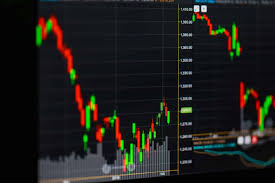
Exposing Forex Trading Scams: How to Protect Yourself
The world of forex trading can be exciting and potentially lucrative, yet it also harbors many resources for dubious actors looking to prey on uninformed individuals. As the forex market continues to grow, so does the prevalence of forex trading scams Turkish Trading Platforms and scams targeting unsuspecting traders. Understanding these scams is crucial for anyone wishing to navigate the forex landscape successfully.
Understanding Forex Trading
Forex, or foreign exchange, involves trading different currencies against one another. It operates 24 hours a day globally and is one of the largest financial markets in the world. Investors are drawn to forex for its high liquidity, significant profit potential, and accessibility. However, the anonymity and vastness of the internet can attract fraudsters making it important to learn how to identify scams.
Common Types of Forex Trading Scams
1. Ponzi Schemes
In Ponzi schemes, returns to earlier investors are paid out of the capital supplied by newer investors. These schemes often promise high returns with little risk and typically collapse when there are not enough new investors to pay earlier ones. Always be wary of promises that sound too good to be true.
2. Signal Provider Scams
Signal providers offer trading tips or alerts. However, some claim to have a proven success rate, only to falter in practice. Unscrupulous signal providers often manipulate their results and prey on traders’ emotions. Ensure that any provider you consider has a verifiable track record.
3. Fake Brokerage Firms
These firms may set up false websites pretending to offer trading services. They often use professional platforms and flashy marketing to gain credibility. Legitimate brokers are usually regulated by financial authorities, so check if the brokerage is registered with a recognized entity.
4. High Leverage Offers
While leverage allows traders to control larger positions with smaller amounts of capital, scammers might offer unusually high leverage, enticing traders to take excessive risks. Such brokers often have no intention of allowing withdrawals, effectively stealing your investment.

How to Protect Yourself Against Forex Scams
1. Do Your Research
Before investing, always research the broker or trading platform. Look for reviews, ratings, and registries of recognized regulatory bodies such as the Financial Conduct Authority (FCA) or the Commodity Futures Trading Commission (CFTC).
2. Be Cautious of Promises
If an investment opportunity claims to guarantee high returns with no risk, it’s a red flag. The forex market is unpredictable, and any legitimate trading opportunity will reflect that reality.
3. Use Regulated Brokers
Choose brokers that are regulated by trustworthy financial authorities. Regulation provides a layer of protection since these brokers must adhere to strict operational guidelines.
4. Avoid Pressure Tactics
Scammers often use high-pressure tactics to get you to invest quickly. Beware of brokers or signal providers who urge you to act immediately without giving you the time to think or conduct thorough research.
Recognizing Red Flags
There are various warning signs to consider when dealing with potential forex scams:
- Unrealistic profit promises.
- Lack of information about company ownership and team.
- Anonymous or poorly designed websites.
- The absence of customer reviews or testimonials.
- Unresponsive customer service.
Conclusion
While the forex market offers opportunities for substantial profit, it is also fraught with risks, particularly from scammers. By educating yourself on the common types of forex scams, recognizing the signs of potential fraud, and taking proactive measures to protect yourself, you can safeguard your investments against deceitful schemes. Always remain vigilant, question everything, and remember that in the world of trading, if it sounds too good to be true, it probably is.